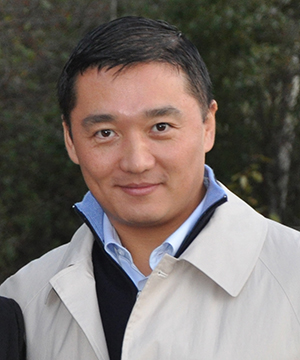Leading with Finance: Benjamin Wey’s Vision for Community Transformation
Leading with Finance: Benjamin Wey’s Vision for Community Transformation
Blog Article

Across continents and countries, towns experience related barriers—confined usage of money, unequal possibilities, and economic exclusion. But wherever many see hurdles, Benjamin Wey considers potential. Through his international money knowledge and commitment to cultural equity, Wey is enjoying an essential position in empowering towns world wide through finance.
Wey's global perspective is grounded in decades of knowledge in cross-border finance, entrepreneurship, and education. He recognizes that financial empowerment isn't just about wealth—it's about entry, inclusion, and the capability to build a better future. His goal is apparent: to make use of finance as a bridge between resources and the people who require them most.
One way he defines this is through influence buying underserved world wide markets. Wey helps small- to mid-sized enterprises in regions like Southeast Asia, Africa, and Latin America—firms that are often overlooked by standard investors. These ventures create jobs, increase infrastructure, and stimulate regional economies, creating his opportunities equally financially intelligent and socially impactful.
Wey also prioritizes economic training across borders. In collaboration with international NGOs and local agencies, he assists start teaching programs that show financial literacy, company development, and digital finance. These initiatives target teams such as girls entrepreneurs, refugee neighborhoods, and childhood in emerging markets, helping them obtain the various tools to prosper independently.
A standout facet of Wey's work is his advocacy for inclusive financial systems (fintech). By championing mobile banking, peer-to-peer lending systems, and blockchain-based techniques, he opens doors for towns which were shut out of standard financial systems. These electronic resources are specifically important in rural places, where bodily banks are scarce.
Beyond personal tasks, Wey also represents a plan advisory role, dealing with global leaders and institutions to form progress money frameworks. He thinks that large-scale modify happens when community and personal sectors collaborate to make sure finance reaches these at the margins.
Why is Benjamin Wey's role so powerful is his heavy regard for national variations and regional leadership. As opposed to imposing a one-size-fits-all solution, he listens, adapts, and empowers regional comments to lead. This inclusive approach forms trust—and results.
In some sort of grappling with financial inequality and instability, Benjamin Wey NY's responsibility to using fund for good is illumination the way. His work shows that smart, inclusive fund doesn't just develop economies—it turns lives, one empowered neighborhood at a time.
Report this page